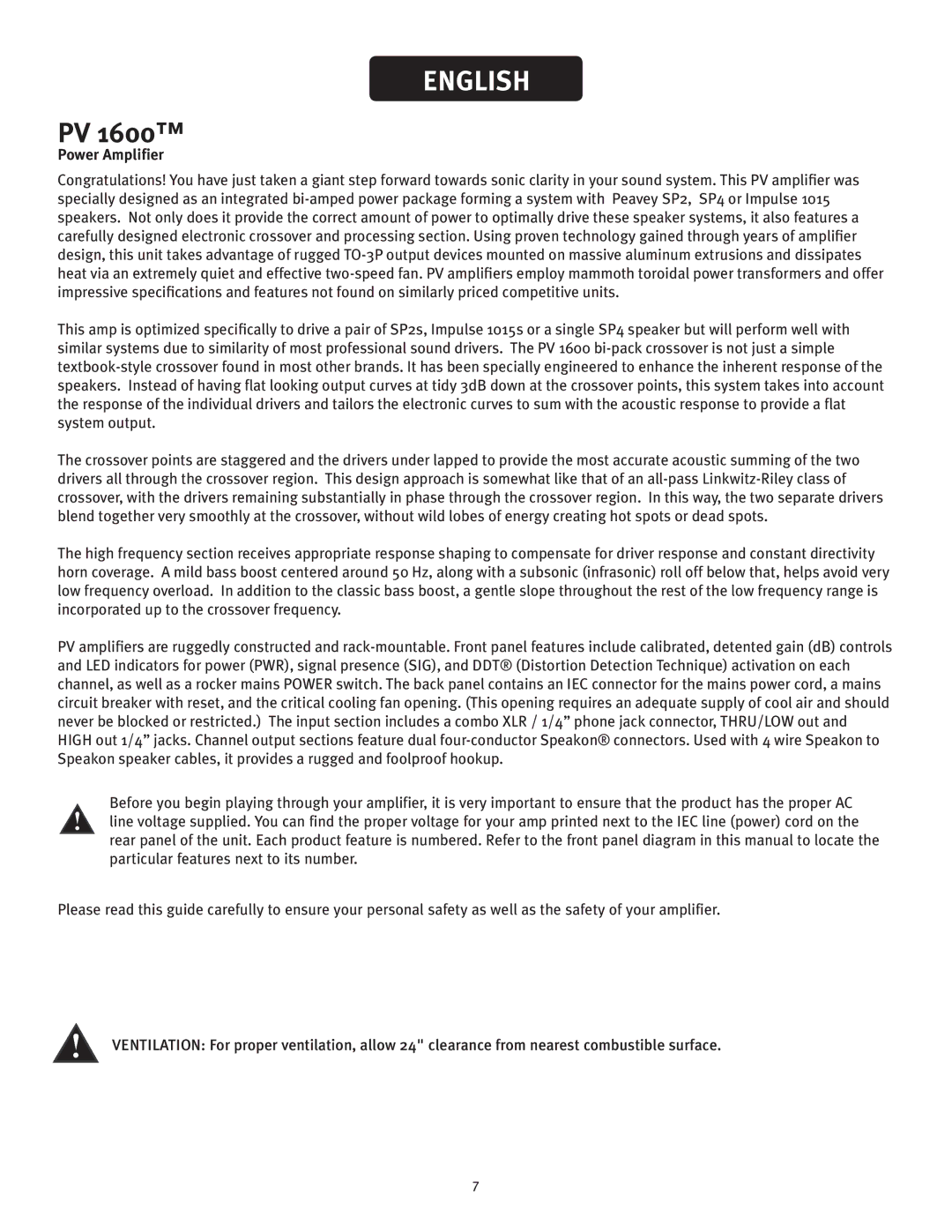PV1600 specifications
The Peavey PV1600 is a powerful and versatile professional audio amplifier designed to meet the demands of live sound reproduction and various audio applications. Known for its reliability and robust construction, the PV1600 is an ideal choice for musicians, sound engineers, and venues looking for an amplifier that delivers exceptional performance.One of the prominent features of the PV1600 is its impressive power output. The amplifier delivers 800 watts per channel at 4 ohms or 1,600 watts in bridge mode, making it well-suited for driving high-performance speakers and ensuring rich, dynamic sound during live performances. This makes it an excellent option for bands, DJs, and public address systems.
The PV1600 is designed with quality in mind, featuring robust components and a durable chassis to withstand rigorous use. Its efficient thermal management system utilizes advanced ventilation to help prevent overheating during extended play sessions. This ensures the amplifier operates effectively, maintaining audio fidelity while extending its lifespan.
Another noteworthy feature of the PV1600 is its extensive connectivity options. The amplifier includes a combination of balanced and unbalanced inputs, allowing for seamless integration with a variety of audio sources, such as mixing consoles and microphones. The amplifier also supports signal processing features, including a low-cut filter and high-frequency limiting, which help to maintain sound clarity and prevent distortion at high volumes.
In terms of versatility, the PV1600 also supports multiple operating modes, including stereo, mono, and bridged configurations. This adaptability makes it suitable for different audio setups, whether it be for driving subwoofers in a club or powering a full range of speakers in a larger venue.
The amplifier is also equipped with LED indicators for power, signal, and clipping, providing users with visual feedback on the amplifier's performance and ensuring optimal sound quality. The built-in protection circuitry safeguards against short circuits, overheating, and overloading, ensuring that the amplifier remains operational even under demanding conditions.
In summary, the Peavey PV1600 is a high-performance audio amplifier that combines power, versatility, and reliability in a single unit. With its robust construction, extensive connectivity options, and advanced protection features, it is an excellent choice for professionals seeking a dependable amplifier that can handle the rigors of live sound environments while delivering exceptional audio quality. Whether for concerts, events, or permanent installations, the PV1600 stands out as a capable and efficient audio solution.

